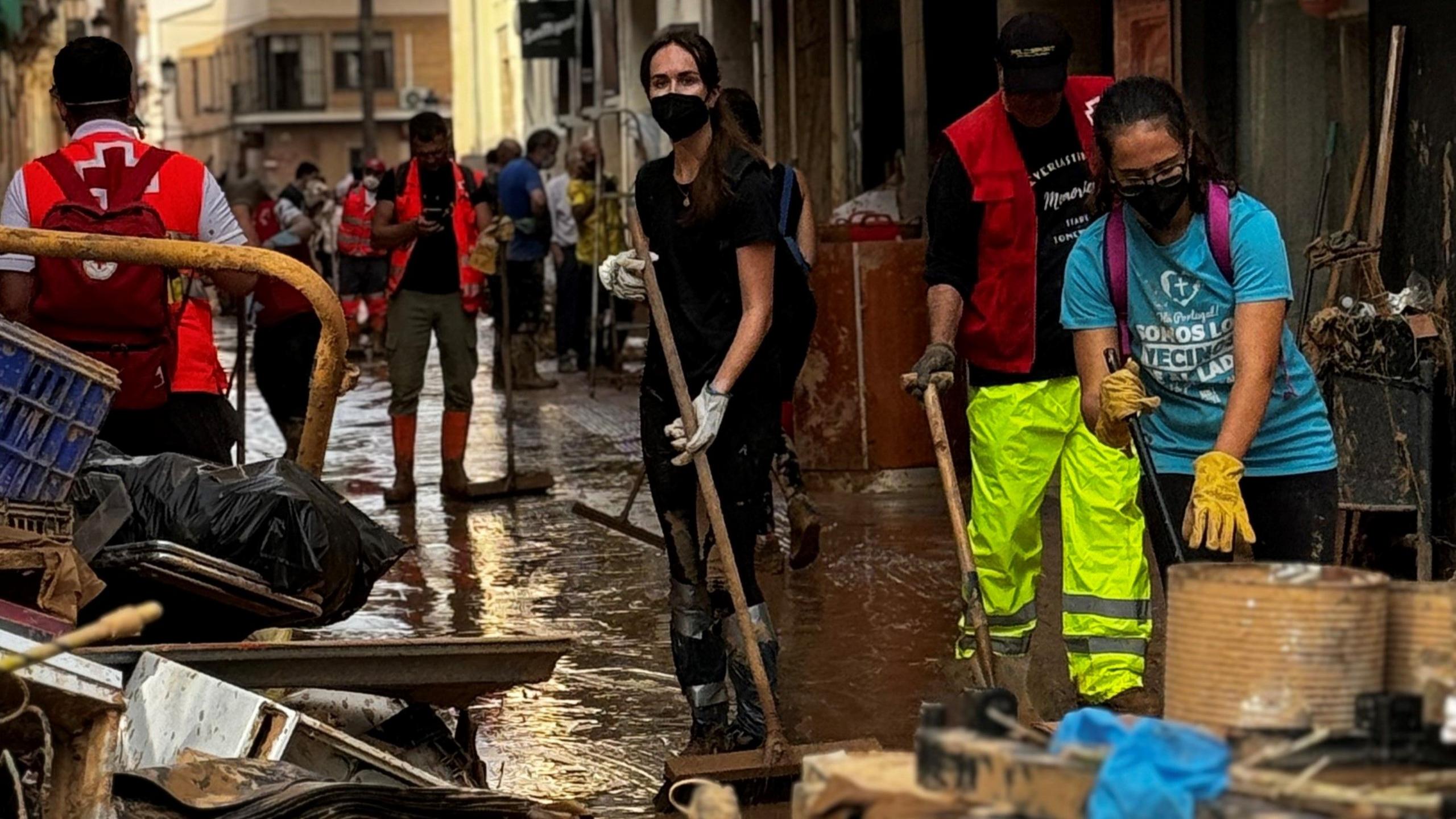Devastating flash floods 'threw cars like toys'
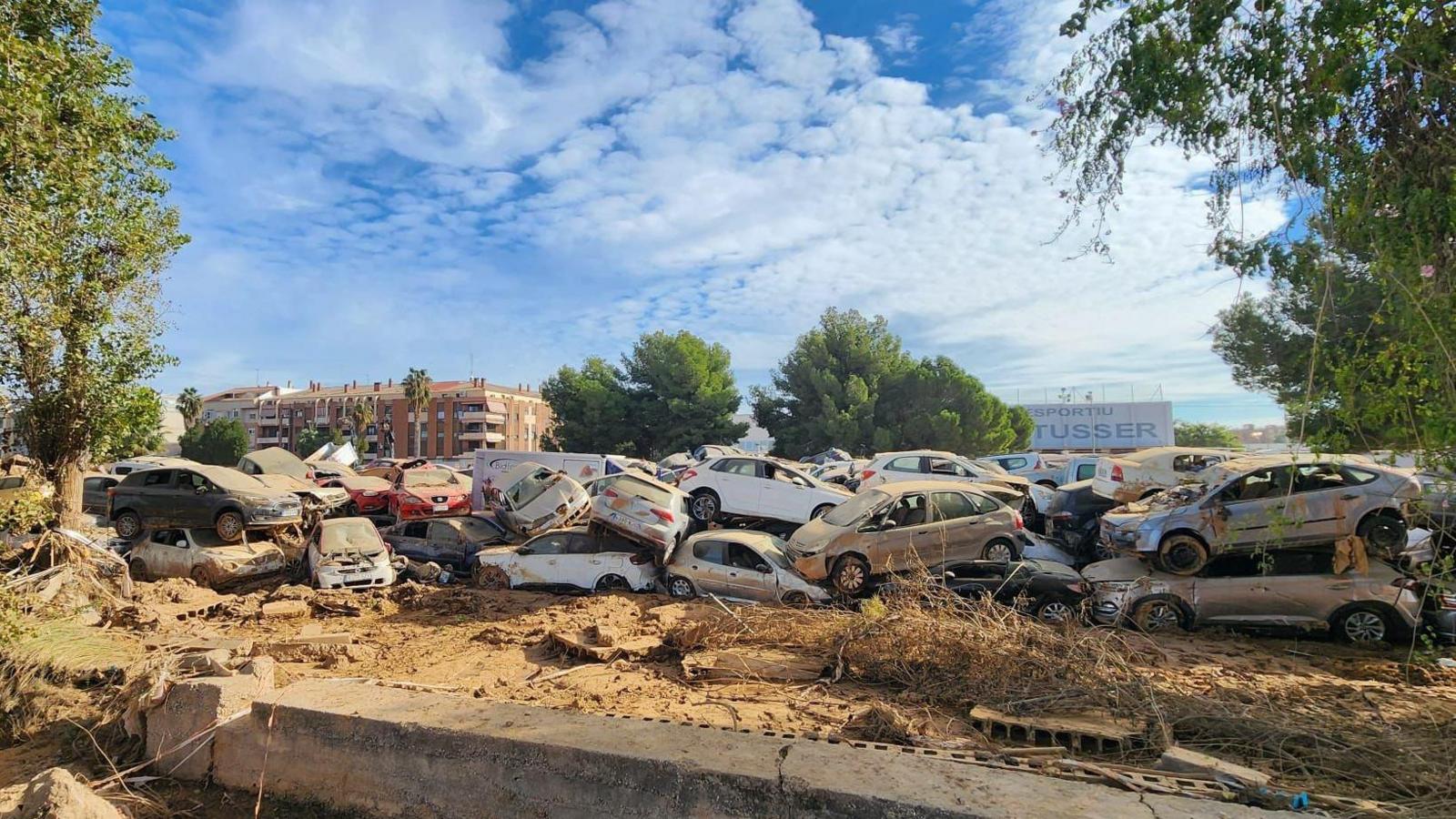
Many streets in Valencia were left stacked high with debris and destroyed cars
- Published
A woman living in Valencia when it was engulfed by flash floods has put together a group of volunteers to help rebuild in the wake of the "devastating" disaster.
The torrential rain and flooding which hit the coastal city at the end of October was the deadliest in modern Spanish history, killing more than 220 people.
Zoe Wilkes, from Taunton in Somerset, saw the death and destruction unfold in front of her own eyes in the city she has called home for the past six years.
She said: "It was just shocking. You couldn't comprehend how strong the water must have been to have thrown cars around like toys."
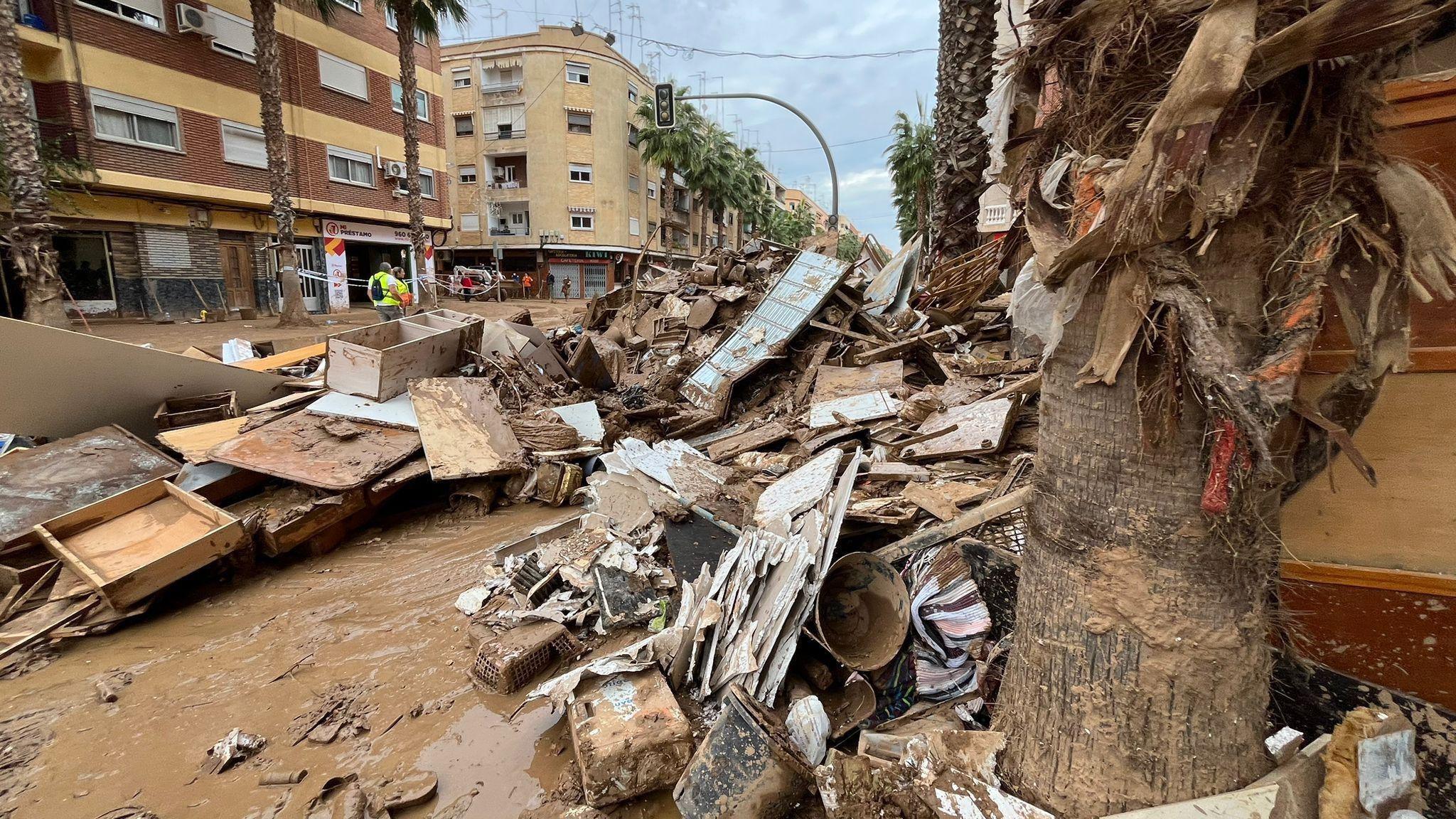
Meteorologists said a year's worth of rain fell in eight hours in parts of Valencia
Within 10 minutes of receiving a flood alert warning on 29 October, Ms Wilkes said the streets had already been submerged in fast-flowing muddy water.
"It was absolutely horrific, I don't think anything can prepare you for seeing it with your own eyes," she said.
"Every single street had 50 cars piled on top of each other, they were wedged between tree trunks and up in the branches.
"Pavements had been completely ripped up, houses were missing walls - debris was everywhere. It was completely bizarre and terrifying."
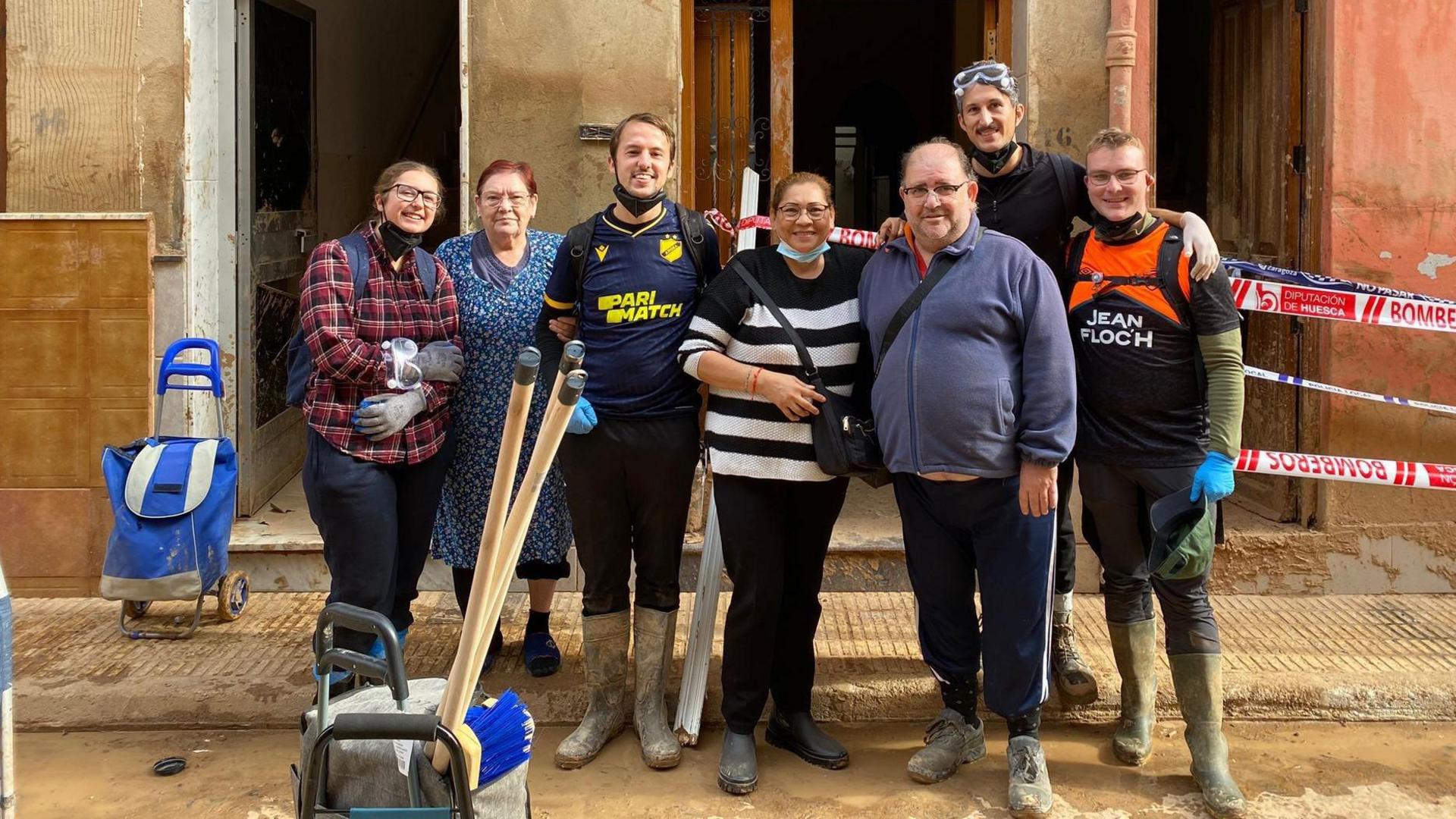
Ms Wilkes said locals told the volunteers "it's so beautiful to hear foreign voices coming to help us"
On day two of the disaster, Ms Wilkes and her sister headed towards the worst-affected areas on the outskirts of the city to help.
She said they were shocked to see a lack of emergency service presence in the streets, with people clambering across the rubble to rescue their loved ones themselves.
"The locals said we were the first people that had come to help them, some people had been trapped for days," she said.
"Everyone knows someone who has lost someone, or they're missing. These communities are so close that if there are deaths it affects everyone."
Valencia's regional leader has faced criticism for taking around 12 hours to respond to a red weather warning by Spain's national meteorological office, Aemet.
Ms Wilkes says the widespread alert issued directly to people’s phones came "far too late", by which time the floods had already caused significant damage.
"I don't want to be too political, but the government really failed us somewhere here," she said.
"People were outside when they shouldn't have been. I think everyone feels very let down and they're all pretty traumatised, understandably."
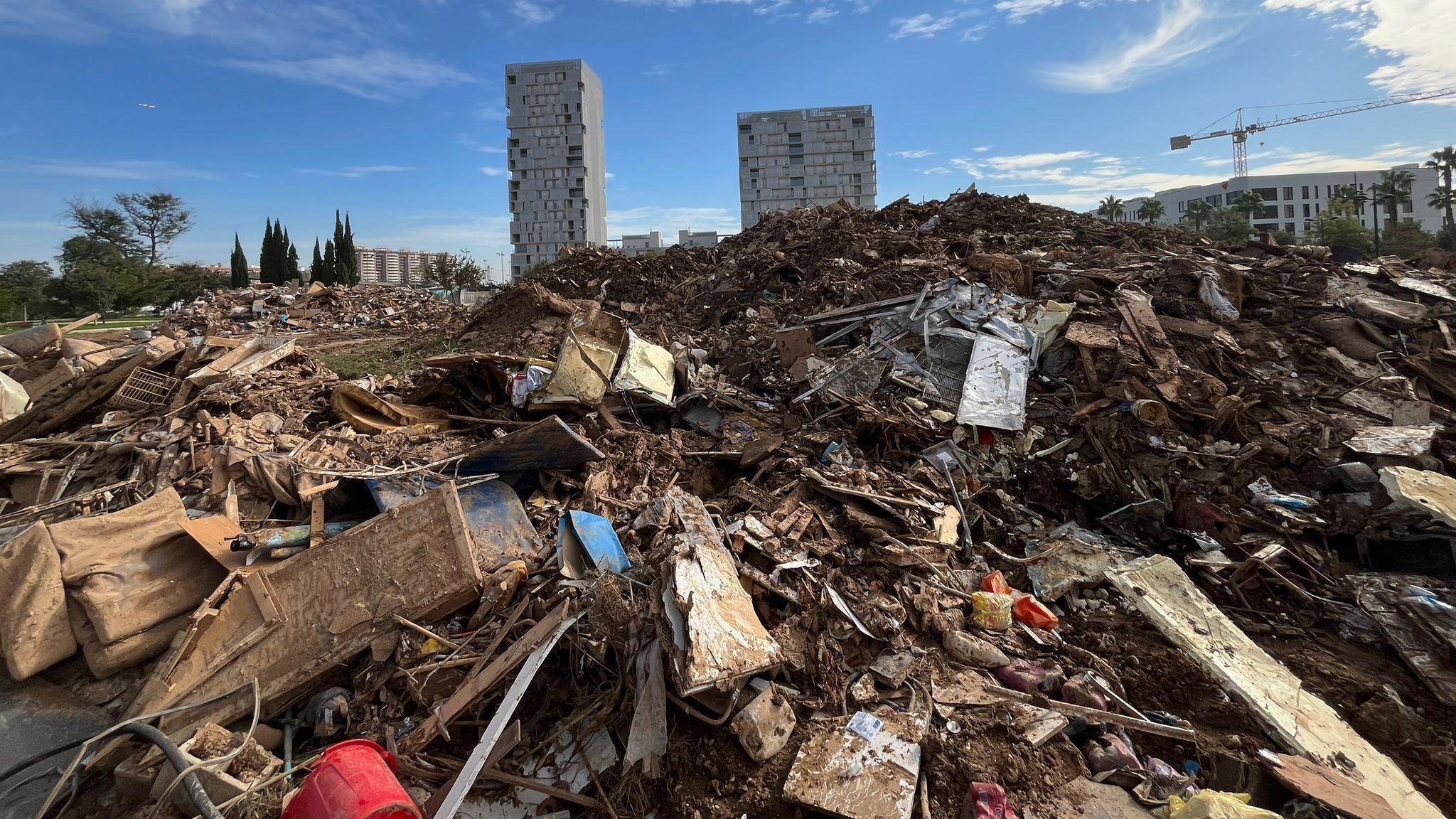
The Guardia Civil says 224 people died in the floods, 216 of them in Valencia
Ms Wilkes has put together a group of around 60 volunteers to help with clean up and recovery efforts, and providing food and emergency supplies to those most affected.
The group eventually plan to use money raised through donations to restore peoples' homes and livelihoods.
"This is just the beginning of something that is absolutely massive," she said.
"It's going to take years and years to recover from this."
Follow BBC Somerset on Facebook, external and X, external. Send your story ideas to us on email or via WhatsApp on 0800 313 4630.
Related topics
- Published5 November 2024
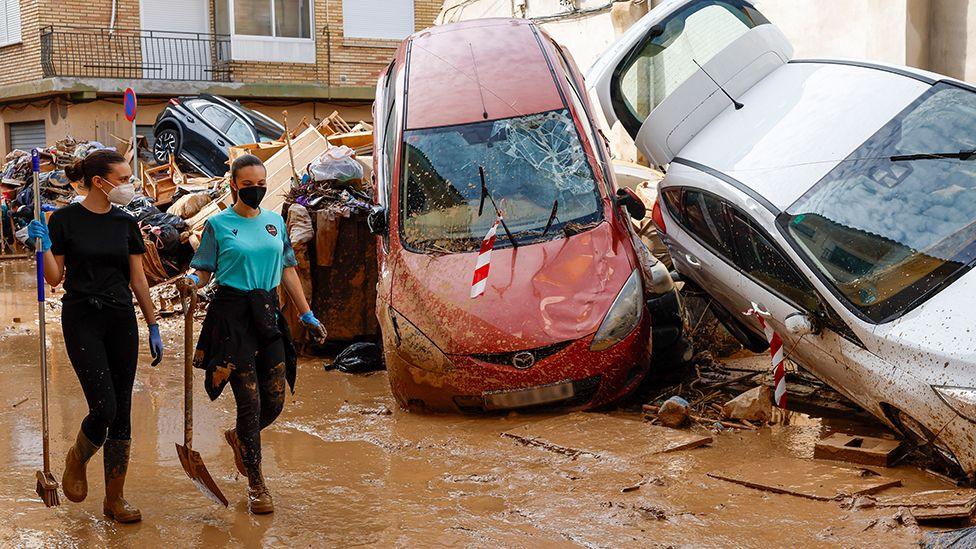
- Published1 November 2024
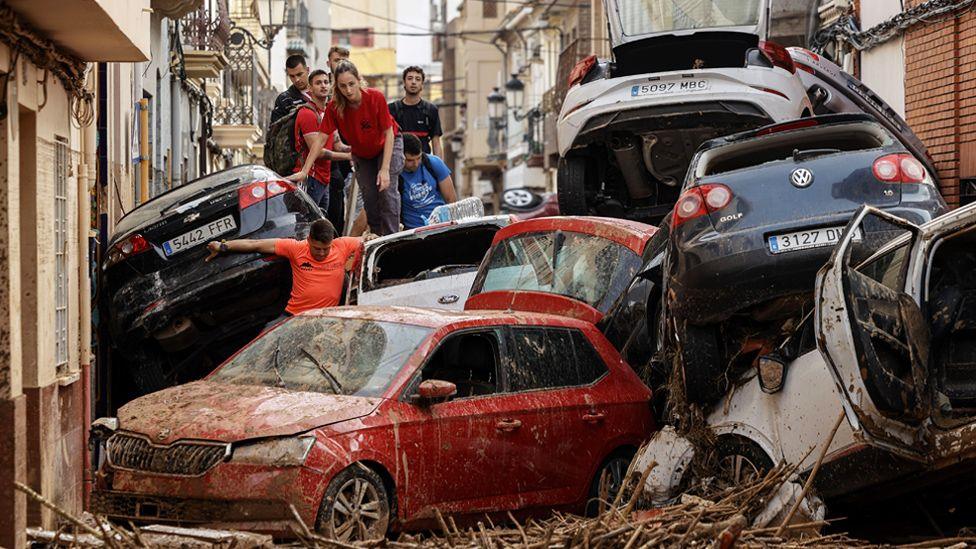
- Published14 November 2024
